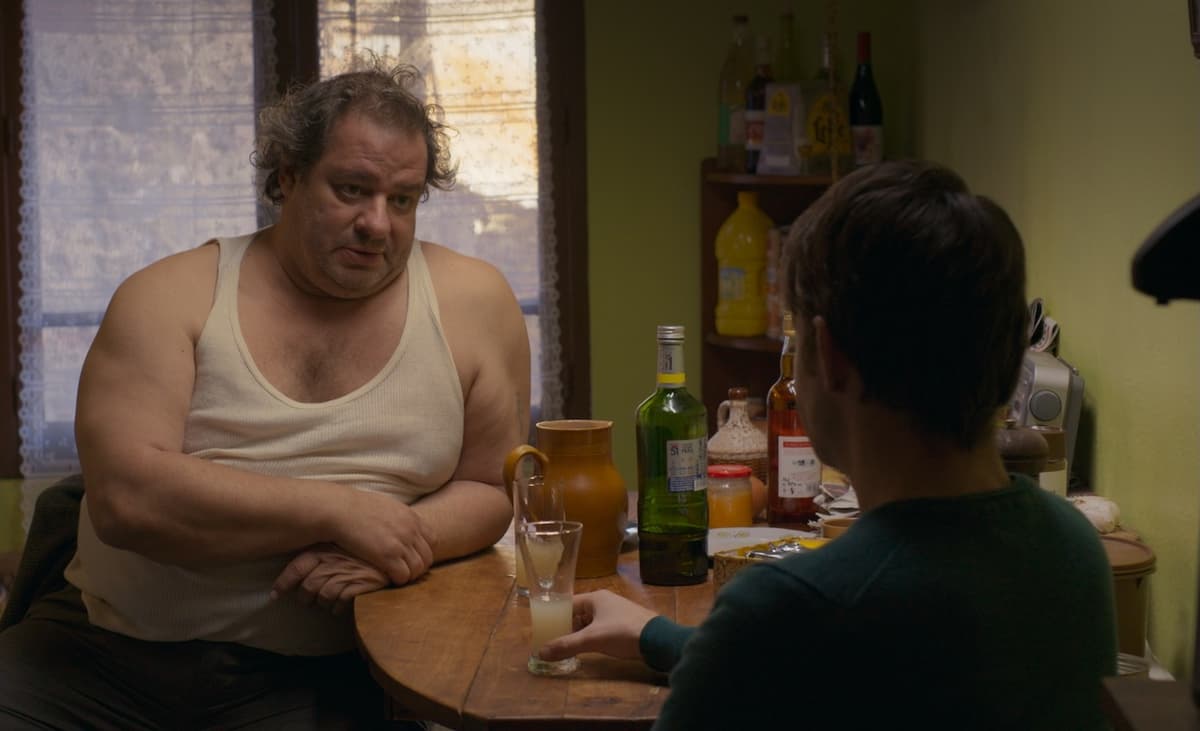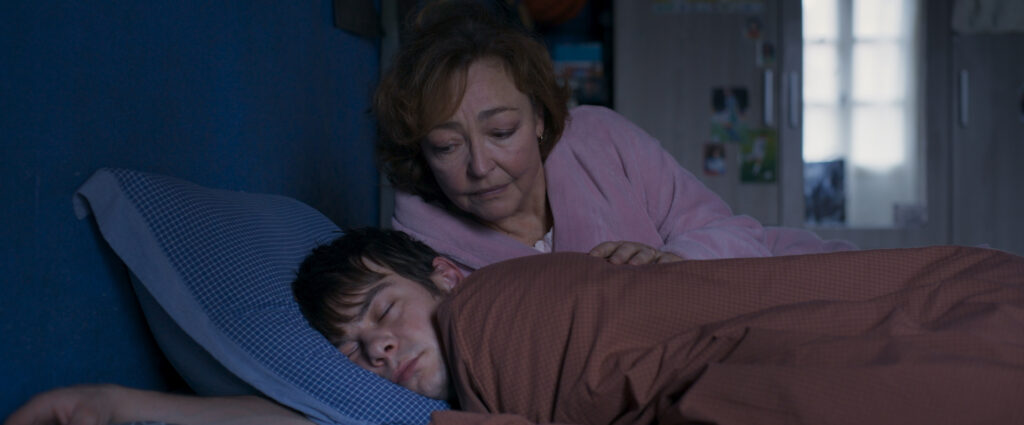One Might Consider Walking Out on ‘Misericordia’ Were It Not Such an Engrossing Experience
Alain Giraudie’s blithe disregard for everyday logic — that is to say, common purpose and consistency of character — will likely prove distasteful or ridiculous to many.

Somewhere Patricia Highsmith is smiling. Alain Guiraudie’s 10th feature film, “Misericordia,” is very much like the late novelist’s writings and the author herself — that is to say, something of a nasty piece of work. The sundry miscreants and psychopaths floating through Highsmith’s amoral cosmos are similar to those in Mr. Guiraudie’s world: They have little regard for social niceties or the rule of law. It’s a fascinating place to visit but you wouldn’t want to live there.
Misericordia stems from the Latin words for “wretched” and “heart,” connoting a compassion leavened by forgiveness. Mr. Guiraudie employs the phrase largely to undermine it, warping its generosity of spirit by means of cheapjack irony. His movie is described as a “tantalizing thriller,” and it is suspenseful, but the thrill factor is superseded by a comedic bent so deadpan and dark that it risks alienating the casual viewer.
Walking out on “Misericordia” would be a distinct possibility were it not such an engrossing experience. Mr. Giraudie’s blithe disregard for everyday logic — that is to say, common purpose and consistency of character — will likely prove distasteful or ridiculous to many. “I’ve tried to get the viewers to ask questions and take part in the story,” the auteur says, calling it “the best way of avoiding boredom.” There are better reasons to make art than the avoidance of boredom, but you get the point.
“Misericordia” is a postmodernist venture minus the flagrant artifice and pop-wise sheen typical of such efforts. Mr. Giraudie’s screenplay couches the actors in situations and settings so lived-in and naturalistic that when the limits of verisimilitude are tested, we can’t help but wonder if it’s our take on events that is questionable. A picturesque village in the hinterlands of France in which its citizens — all seven of them — are pan-sexual opportunists of one sort or another? I mean, come on.
Credit the director for building and then sustaining this credulous notion. The occupants of Occitania — a région at the southernmost tip of France with a population numbering a tad more than 6,000 — are likely less venal than those featured in “Misericordia.” Let’s hope so anyway.

The Occitanian screw turns upon the death of a local baker, prompting his former assistant, Jérémie Pastor (Félix Kysyl), to return to the village for the funeral. The widow, Martine (Catherine Frot from “The Rose Maker“), invites Jérémie to stay at her home, but there’s an unsaid and tensive current to their interactions. Martine’s son, Vincent (a hulking, pugnose Jean-Baptiste Durand), isn’t fond of Jérémie, not at all.
Amongst the mourners visiting Martine’s home is a slovenly loner, Walter (David Ayala), and the village priest, Father Philippe (Jacques Develay). Both are caught flat-footed by the return of Jérémie and there is a niggling sense of history — history of an unseemly sort, it would seem — amongst everyone involved. When Jérémie decides to extend his stay, Martine insists on his continuing as her guest, even as Vincent becomes livid at the thought. Threats ensue, as do misbegotten sexual advances and murder. Oh, and a lot of foraging for mushrooms.
What follows is an absurdist comedy of manners dressed in the guise of a film noir. Hypocrisies are abundant and made light of in a shooting-fish-in-a-barrel kind of way. As the picture unfolds, the plot becomes increasingly farcical in its tight-lipped perversions. Mr. Giraudie’s machinations don’t prompt much in the way of laughter, but neither do they engender the smugness that tends to tag along with a nudge and a wink. Sophocles might’ve appreciated an ending that is wholly inappropriate and tonally spot-on.
An icky masterstroke, this “Misericordia,” and a movie that should be taken with more salt than might seem advisable.

